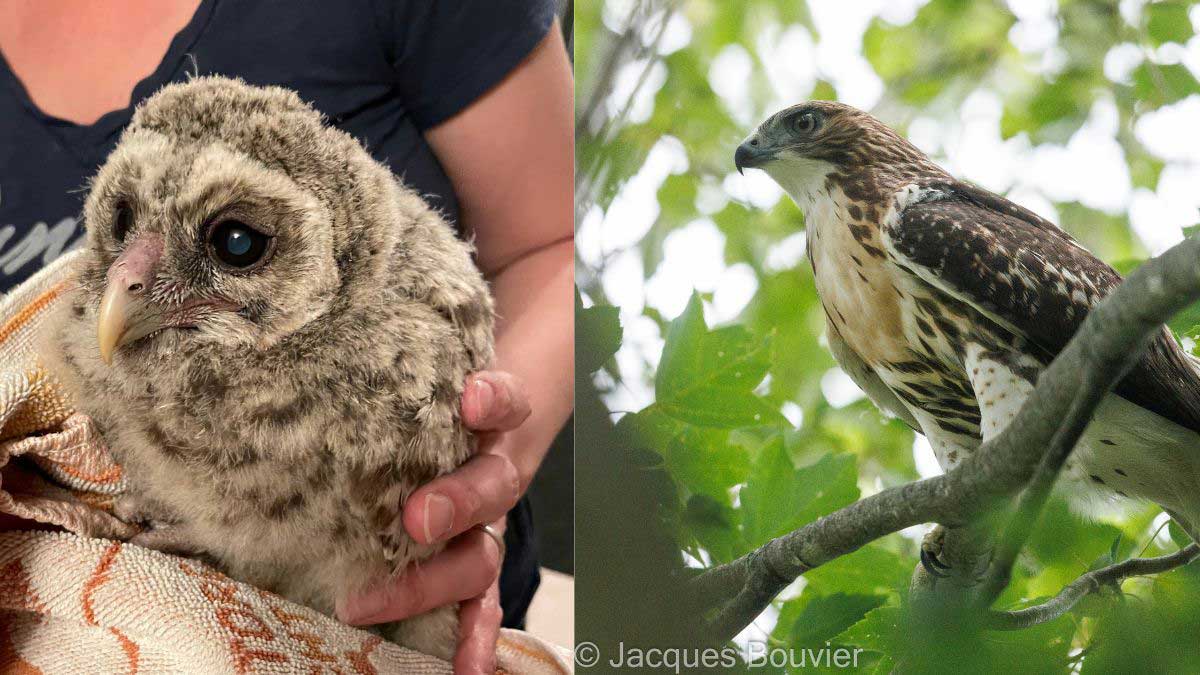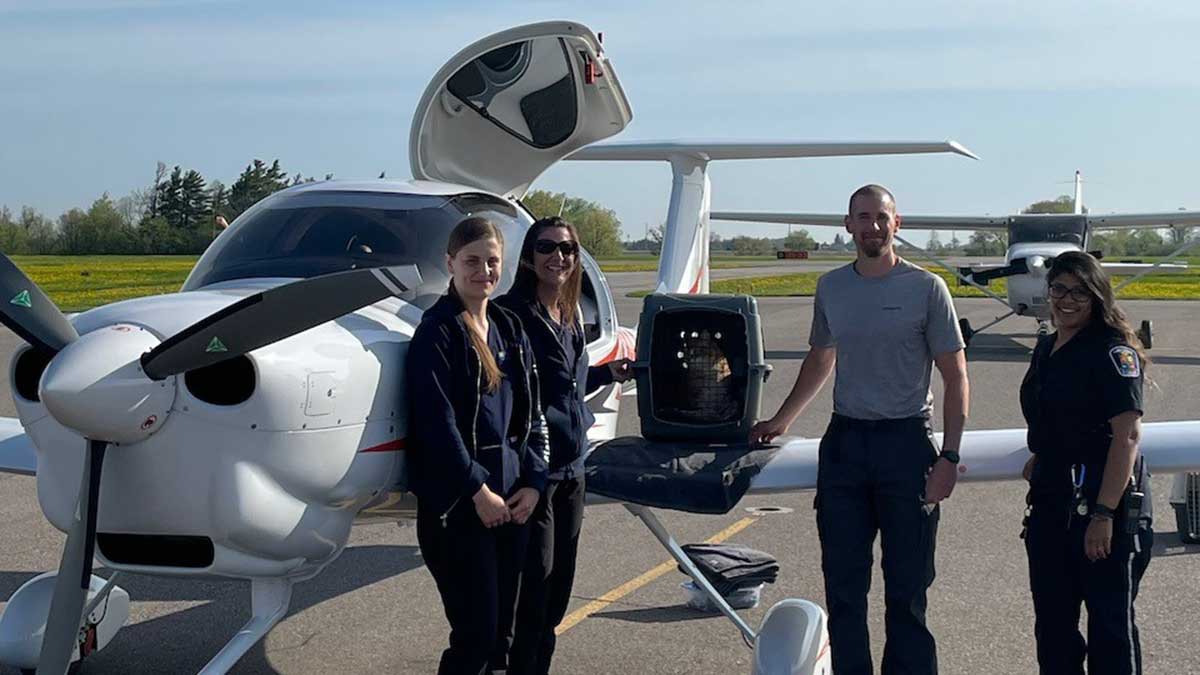This past July, a red-tailed hawk, too young to fend for itself, was found without parents on the front lawn of a home in the Township of Alfred and Plantagenet, Ont. Around the same time, a young great horned owl was discovered on the side of a road in Kemptville, also without its parents.
Volunteers with Canadian Wings of Rescue, Safe Wings Ottawa and The Owl Foundation banded together to save the orphans — a feat that required transporting the birds for special training and rehabilitation outside the region — before safely flying them back to Eastern Ontario for release.

It is a unique partnership. Canadian Wings of Rescue works with pilots who volunteer their aircraft and time to fly animals of all sorts to rehabilitation centres or new permanent homes. The organization has flown 1,200 animals nationwide to safety since its start around 11 years ago.
Safe Wings Ottawa and The Owl Foundation are charitable organizations that help rehabilitate birds, owls and other raptors.
Gerd Wengler, the volunteer pilot who flew the birds on this particular rescue, said he has been working for Canadian Wings of Rescue since it began in 2012. A pilot for most of his life, he has been making charitable flights since he retired about 25 years ago.
Wengler said his love for flying is why he started volunteering with Canadian Wings of Rescue.
“I love to fly and I can combine it with a charitable cause and the animals are safe so it helps everyone.” He flies a four-seater single-engine Cessna.
“I pay for this completely on my own. I don’t get a penny back. We are talking about thousands of dollars in jet fuel [and] I have to maintain my plane,” he said.
Christina Huppe, who rehabilitates birds for Safe Wings Ottawa, said the public should call if a bird is in need.
“Anytime that you see something … out of the ordinary, it’s best to call and get advice, rather than to just to assume to let nature take its course,” Huppe said.
After the two birds of prey were brought into Safe Wings Ottawa’s care, they were transported to The Owl Foundation in Vineland Station, Ont., in the Niagara region.
Wengler flew from Ottawa with the hawk in a special container, while Heather King, a volunteer driver with the Owl Foundation, drove the owl. At The Owl Foundation, the birds received specialized care.
According to a press release by Canadian Wings of Rescue, rehabilitation at The Owl Foundation included improving the birds’ flying and hunting skills.
Huppe said that The Owl Foundation has large cages for the birds to practise flying, and disease-testing equipment, which is why they transfer some birds in need there.
King, of The Owl Foundation, said the foundation works really hard to limit human dependence as the animals re-learn how to be incorporated into the wild. “[Rehabbers at The Owl Foundation are] not going to go into the cage and feed them as a human would. They’ll wear a mask and scarves … over their face and head,” King said.
After rehabilitation at The Owl Foundation, Wengler flew both birds back to Ottawa. The owl was released in Kemptville, and the hawk was released near Alfred and Plantagenet.
Greg Campbell, a volunteer pilot with Canadian Wings of Rescue, said the organization fills a need to fly animals who cannot take regular commercial flights.
Campbell also said the organization will fly animals to offset the cost for shelters that do not have the funds to fly animals far away.
Campbell said awareness is the most important thing for the organization.
“Both [to] get the word out to shelters, that have animals in need and the pilots themselves … The more pilots we have the more we can cover some of the complicated and more long-distance missions that come up,” Campbell said.
Campbell and other volunteers said helping these two birds of prey was a group effort, and the birds would not have been rescued without their teamwork.




